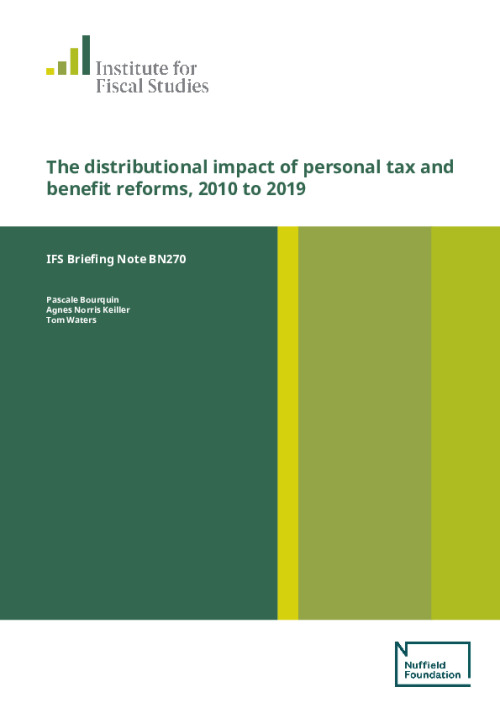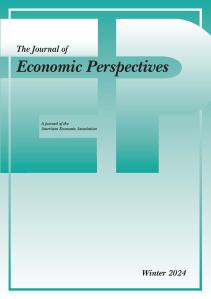The tax and benefit system has undergone significant reform since 2010, with large cuts to working-age benefits, a rise in the main rate of VAT, increases in the rate of the state pension, and reductions in direct tax, including a big rise in the income tax personal allowance. In this briefing note we investigate the impact that these reforms have had on household incomes. An earlier briefing note discussed the benefits policy challenges that the next government will face.
Key findings
- The tax and benefit system has undergone significant reform since 2010, with large cuts to working-age benefits, increases in the state pension, a rise in VAT, and reductions in direct tax, including a big rise in the tax free personal allowance.
- Low income households have lost out from these changes overall, especially those with children. The poorest 10% of households have seen losses of 11% of their income (£1,200 per year) on average as a direct result of these reforms; among those with children the figure rises to 20% (£4,000).
- The highest income households have also lost out from tax rises. The highest income 10% have seen losses of 2% (£2,600 per year) on average.
- Pensioners have broadly been protected, on average experiencing little change in their net income as a consequence of tax and benefit policies.
These reforms have broadly served to strengthen work incentives, with workers in poorer households in particular keeping more of an extra pound of earnings.
A version of this briefing note was published on 22nd November 2019. We have since removed three policies from the analysis as we are not confident of being able to robustly estimate their impact. The new version was published on 4th December 2019.











